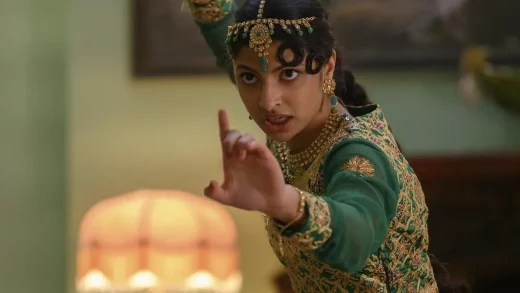:format(webp)/https://www.thestar.com/content/dam/thestar/entertainment/movies/2022/10/07/mila-kunis-on-her-work-on-camera-and-off-in-netflix-thriller-luckiest-girl-alive/ms1_8308_7f573952_c30d_4cea_b53b_5b0a4a3e871f.jpg)
Mila Kunis has always liked emotions and has never been afraid of expressing them. In fact, she relishes the opportunity to play someone that’s broken — that’s exactly what her role called for in the Netflix thriller “Luckiest Girl Alive.”
The film is an adaptation of Jessica Knoll’s bestselling 2015 novel about a young woman named Ani who reinvents herself with a perfectly crafted New York City life after experiencing a series of traumatic events in her teenage years.
“I love playing somebody who is so desperate with wanting to be something that they’re not,” the Ukrainian-born actress says of playing Ani during a one-on-one virtual interview.
The film deals with two sensitive subject matters: sexual assault and gun violence. While the story is a work of fiction, Knoll revealed she was a rape survivor in a 2016 essay in the newsletter “Lenny Letter,” a year after the book’s release.
When it came to writing the screenplay for the film, Knoll felt strongly about being the one to adapt the novel into a movie. She wrote and rewrote the script for seven years and said that it was “definitely challenging.”
“I think I’m a little bit in shock that it’s actually happening and we’re actually here. It’s been such a long road. I’m stealing myself a little bit. Because although it’s so exciting to think about people seeing this thing that we’ve been working on for so long, I don’t know how everyone’s going to feel about it. There’s some provocative conversations that I think this story could spark. I think that makes for an exciting story and exciting character, ” Knoll said during a virtual interview.
Kunis, 39, has a clear sense of the kinds of characters she wishes to embody — someone far removed from herself, without ever judging them.
“I think that anytime you work on a character, or you do any film, whether it’s a drama or comedy or horror, doesn’t matter what the genre is, people are people, and monsters are monsters and you can’t be judgmental. The worst thing you can do as an actor is judge your character for doing something. So the first thing that you want to do is find the justifications for all of their actions because so rarely will they actually align with yours as a person,” she said.
For Chiara Aurelia, who plays the young Ani, giving agency to the character was important because she knew the story was a difficult and challenging one.
“I do think something that’s really important to highlight is the fact that the impact is not just in the moment. I think something that our story is trying to tell is that it’s the aftermath, the shame, the guilt, the feelings of confusion and not understanding, and especially for young women who don’t know what happened, and they don’t understand how to feel about it. I think that the impact of trauma, it stays in your body, and it can affect you for a long time,” she said.
Kunis stressed that the movie also differentiates between being a victim and a survivor. “I think that as a society we want everyone to be a victim, because sometimes it’s easier to put them in a box that way, and then we know how to treat that person versus a survivor. That’s a much harder person to try to acknowledge. So I think it’s making sure that we allow the person to identify themselves however they want, and not to project onto them how it is that we’re comfortable dealing with them.”
The actress credits director Mike Barker, known for his work on the groundbreaking series “The Handmaid’s Tale,” where he handled the delicacy and nuance of sexual assaults on the show.
“There are some directors that look at scenes like that and they just beat them down. They do them over and over again. And it’s exhausting and by the end of the day, you’re just this mess of a tissue. Barker is so great about just moving it forward,” she said.
Barker said, “I think the most important thing is that this is a real journey of a woman recovering from trauma. It was very much Jessica’s story so I wanted to make sure Jessica was close to me all the way through this.”
Kunis not only stars in the film but is also a producer and was instrumental in figuring out the ending of the film.
“I think what surprised me is how she really helped creatively as a producer. We had been kind of stuck in the third act. We weren’t quite landing the ending at the time we first sent her the script and she picked up on that,” Knoll said,
Kunis is acutely aware of how to toe the line on such a heavy subject matter. “It’s whether I ask questions, know when to ask questions, know when not to ask questions, know when to take creative liberty, know when not to take creative liberty,” she said.
Aurelia hopes that “people would be impacted by her journey and be able to follow the film and enjoy watching it, but also see the kind of strength and empowerment that hopefully is going to spread to a lot of women out there.”
JOIN THE CONVERSATION




